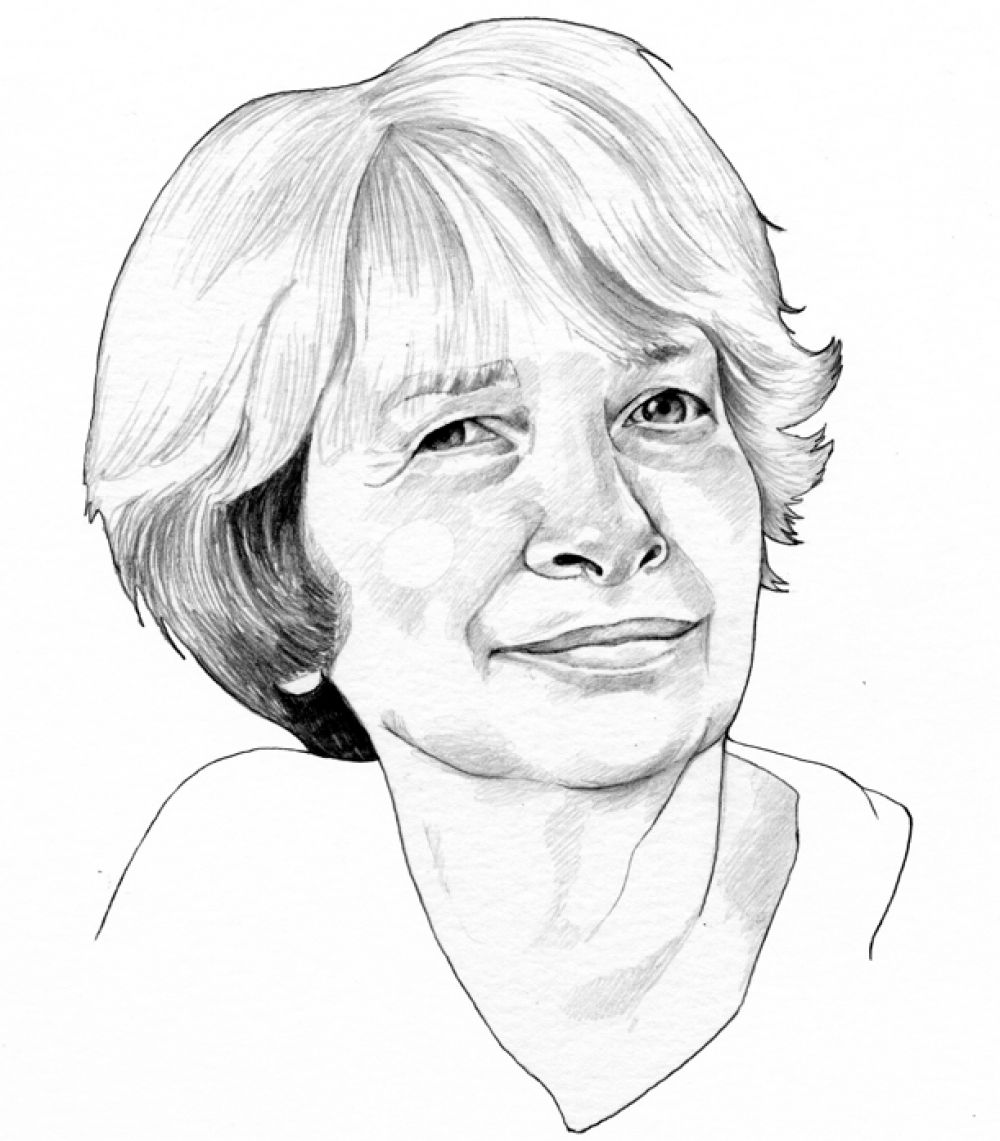

There was some fear and trembling when I heard French philosopher Bruno Latour refer to her as his ultimate master: “the one whose whip is dreaded,” as well as the only person capable of making him cry when challenging him over one of his texts. This state grew further when I was informed of how respected she is, even amongst analytical philosophers. If I'm not mistaken, this has never been seen before, someone writing intelligible stuff without being decapitated by analytical philosophy.
Born in 1949, in Brussels, science philosopher Isabelle Stengers trained as a chemist before turning towards philosophy. At 30 she published her first book with Nobel prize winner physical chemist Illya Prigogine. Since then, her fields of interest have been rather heterodox. She spent several years contesting the authoritarian pretension of modern science, wrote books and articles on hypnosis and psychotherapy with Leon Chertok and Tobie Nathan, participated in theatre and tv scripts and introduced France to the work of the neo-pagan witch Starhawk. Today she cites as her thought-companion philosopher and ecofeminist Donna Haraway. The latter plays a major role in her last book published in 2020, Réactiver le sens commun, (Ed. La Découverte) that is inspired by and dedicated to British mathematician and philosopher Alfred North Whitehead.
A few minutes before our interview I tripped on a saucepan and broke a vase. A warning for sure. I sat behind my desk and waited with angst for my hour to come. But then, when the screen finally came to life, there was no iron lady holding a whip to be found. There appeared instead, a friendly face with a kindhearted expression. Isabelle Stengers said hello and lit one of her rolled cigarettes.
“Let me try and fix this machine,” she then added while plugging in her headphones. Her shelves were unorganised and cluttered with books. “Just look behind me,” she said laughing,“ I’m very talented at leaving stuff lying around in the house…Oh, no I don’t do any sports and I lead an unhealthy life.”
The joyfulness and lightness of her voice reminded me of one of Sleeping Beauty’s fairy godmothers. The type of woman you meet in a hut in the middle of a haunted forest. You open the door, half dead and there she is, stirring a cauldron. She greets you, serves you a warm soup and saves your life.
Under Stengers apparent sloppiness and modesty, lies an impressive power to untangle, deconstruct and unfreeze judgments. As if her mission was to reanimate concepts that got stuck in a swamp by welding them to new channels of irrigation and oxygen. “To think through the middle,” is another one of her leitmotivs. Finding ways to link apparent oppositions to one another, without drowning them into relativism. “My goal isn’t to denounce but to de-normalize,” she says. “When I feel there could be a possibility of un-submissiveness, meaning of how things could be otherwise, I start to think.”
Hereunder, the transcript of our interview which occurred during the month of February 2021 via zoom. She was in her office in Brussels, I in Salzburg.
***
How was your childhood?
I didn’t have a very exciting childhood. My parents were both historians who would work like crazy and have very few social engagements. I didn’t share much with my brother and sister either, which meant I was mostly on my own and in fact, quite isolated. Not gifted in sports, dancing or any other type of physical activity, reading novels is what helped me survive. It filled me with imagination and questioning. Otherwise, like Obelix in Asterix, I for sure fell in the broth of academia before having even pronounced my first words. It’s not that I had a particular respect for University, I just saw it as an environment in which I would naturally end up. Moreover, everyone had recognized me as “my father’s daughter” assuming I would dedicate my life to research. Which I actually did, but not in the presumed manner. When I chose to study chemistry, and not like expected, history, I attempted a break. At the time, this meant reaching towards notions I had no access to through fiction. Chemistry presented itself as being the furthest thing from anything I felt comfortable with. It also implied the use of my ten fingers which, believe me, was quite a challenge! One in which I didn’t succeed so well as I remained quite mediocre in the lab. Fortunately, I was rather good in theory.
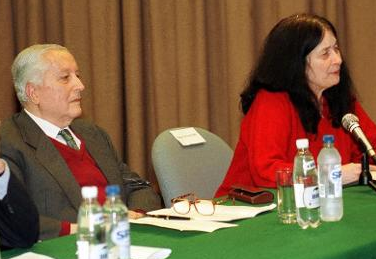 Ilya Prigogine and Isabelle Stengers
Ilya Prigogine and Isabelle Stengers
So your rebellion consisted in of choosing chemistry over history?
And after that, studying philosophy although I didn’t know at the time what philosophy meant. If I left chemistry, it’s partly because the questions scientists recognized as “the only ones that matter”, weren’t sufficient to me. I felt the need to craft my own questions rather than having them imposed. Chemistry, and later philosophy, appeared to me a means to escape my comfort zone. Yet, I wouldn’t call these decisions ‘rebellions’ as they weren’t motivated by rupture, but rather by perplexity – and a need to connect and understand the world I was born in. My aim then, and still today, is to explore different ways of thinking that can ultimately increase my feeling of being alive. That’s also why I’ve remained a fiction and science-fiction reader. The latter being a great tool to immerse oneself in feeling and thinking about how things could be otherwise.
Once we sense how things could have been otherwise, for instance in regard to decolonial theory, what are we supposed to do?
Feel ashamed (laughter). I often refer to Gilles Deleuze’s distinction between guilt and shame. The former is a feeling that takes up the whole space: the guilty being the one who acted and the victim the one who merely suffered. Whereas shame stimulates reflection. It shows us that what was defended and considered as normal yesterday could have been challenged. Shame is therefore an invitation to resist what is considered normal and acceptable today. Unlike guilt, shame urges us to relate differently to our past and therefore to our present. History for sure had its monsters. But it was also (and still is) full of people who don’t necessarily subjectively share affinities to colonialism and who yet adhere to positions and judgments that we have only come to understand over time as imperialist and colonialist. The advocation of white supremacy may well have been unveiled in some areas, in others, I’m here thinking of how we still define modern science and progress as our gift to humanity, the work is still to be done. Decolonizing our thoughts is a long, demanding and transformative process, in which I believe shame can be useful, precisely because it's a call for change.
Is your resistance towards “how things are” a matter you inherited from your family?
It’s true that my father, as a historian, considered it his honor and duty to refuse to bend. History for him wasn’t meant to produce moral considerations. Never did he hid or downplay things that were unpleasant, awkward or disturbing. Yet, I’d say that this resistance towards “how things are” is a trait I mostly inherited from my mother’s mother. She was a real witch, original and impertinent. She had married a workman whom she would rule with an iron fist. In a Zola novel fashion, she had decided that her children would accomplish a jump of social classes and go to University, which they did. She was also the only person of my family who didn’t exclusively consider me as “ my father’s daughter”. I’m quite sure that the freedom one acquires through the refusal to submit and to conform are quests she transmitted to me.
Is the refusal to conform or submit a guiding principle of your work and philosophy?
Philosophy is indeed for me the art of rejecting submission. It’s not an authoritative exercise, but an adventurous one; an attempt to open doors to what we have been told to give up in the name of reason. I’m referring here to a prior argument in which, in the name and through the threat of irrationality, stories end when they precisely start to be interesting. In my opinion, one should refuse such censorship. Not necessarily by denouncing, which is something I find quite redundant, but rather by continuing to think and imagine where others often stop and conclude. Philosophy is resistance through denormalization. Resisting a destiny in which the display of power is shown as the natural translation of “how things are and should be.” This doesn’t mean working against “what is”, but rather with “what might be possible.” I actually feel quite in tune with what some American activists and neo-pagan contemporary witches call “reclaiming.” That is, the re-appropriation of what we have been separated from and the healing of what this separation has done to us. Reclaiming philosophy is about bridge-making rather than definition and judgement.
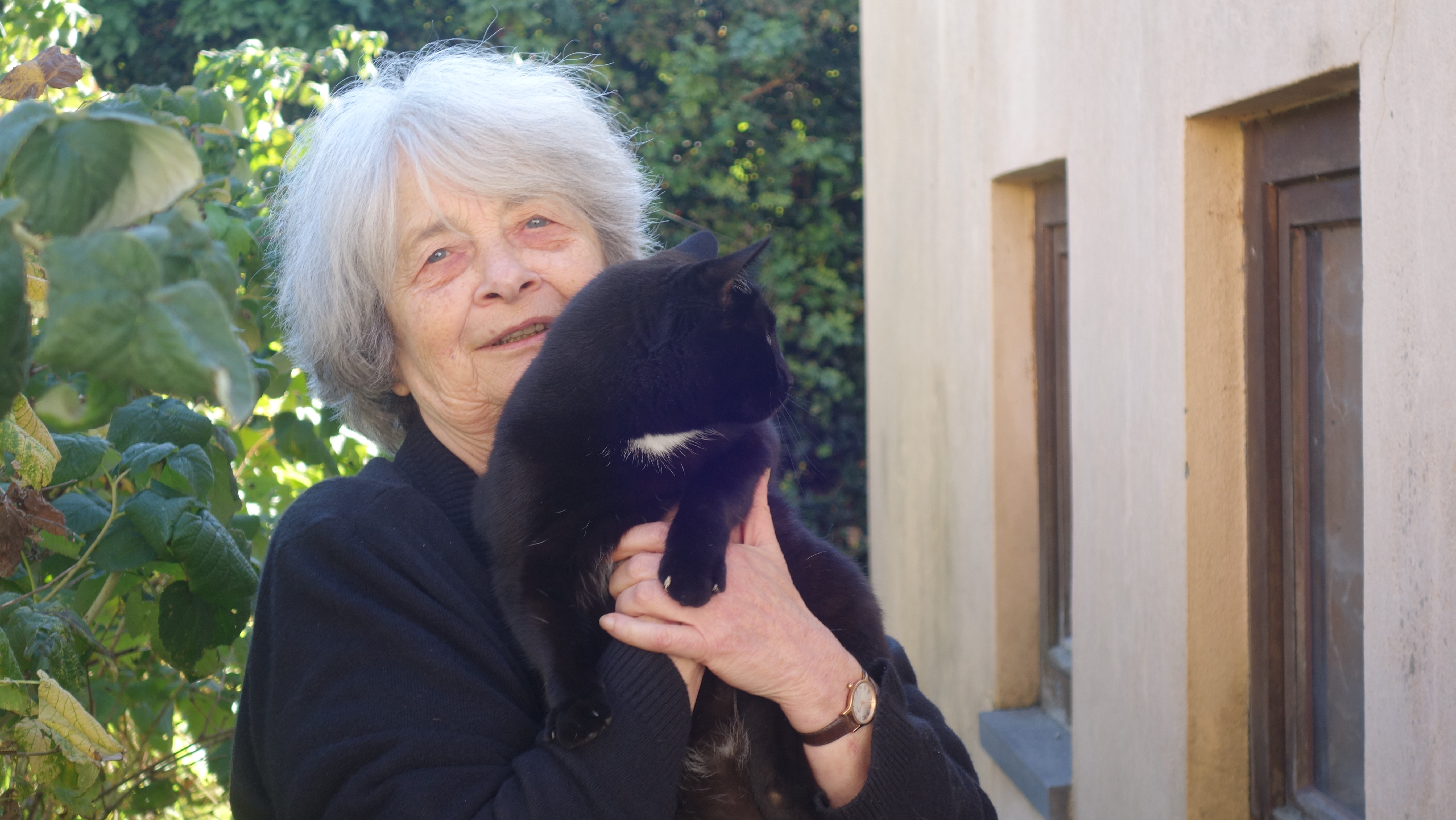 Shaya and Isabelle Stengers
Shaya and Isabelle Stengers
It seems that one of your aims, metaphorically speaking, is to make the water boil. As if you refused its fixity. What’s in the cauldron needs to constantly be re-animated or at least activated?
It’s true that I don’t like when the water isn’t near boiling, tepid. For a long time, I seized opportunities to intervene in areas where I would tell myself, “Ha, here things could be different, let’s make the water simmer a little more.” I’d insist, for instance, on the idea that another science is possible. I would disagree with the nostalgic complaints of many scientists who believe that sciences are being destroyed merely by the imperative of fast innovation and contribution to economic growth. For the sciences they regret were also actively involved in the destruction of a great many ways of living and knowing. Today, to resist “fast science” implies to join others who are also resisting through different channels, the manifold destruction of ways of living and the very habitability of the earth. By bringing up these observations, I often had the feeling of being a millimeter ahead of the situation as it was usually considered. Yet, since a decade ago, I‘d say the water is boiling in many of the fields that interest me. I’m discovering more and more thinkers who bring out points to which I wasn’t sensitive before and which add to what you call my cauldron. In other words, I no longer feel I’m ahead of, but rather “with” my contemporaries.
If you could reincarnate, what and where would you choose to be?
If I’d want to dispose of a greater power of action, to replay things that I have missed in my life, I would probably choose to come back as a man. Yet, I couldn’t possibly imagine myself as a man! (Laughter). Being a woman made me sensitive to many things that I would have perhaps missed as a man. We are all more or less dented and have learned how to do our best thanks to these dents. I’ve been generated as much from my cowardice as from my strengths. The fact that I don’t do any sports or all those things I should be doing, this laziness so to say, is constitutive of who I became. If I had for example been a wonderfully seductive young girl, I would not have become who I am.
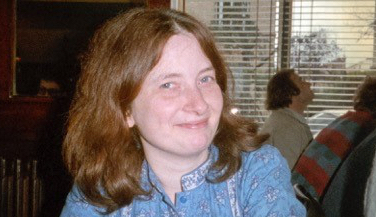
Would you have married a successful man?
Not sure. Successful men usually need seductive wives, don’t they? Caring about one’s seductiveness is a dent that would have most probably bored me. But who knows? The fact is that I've never tried to seduce anyone, even if my words and thoughts may have had this effect. When you seduce you become dependent on the effect you produce, and I have never been tempted by this. This also might be because I somehow always knew there was a potential power in me, one that I didn’t necessarily fully grasp, but that needed to be protected and nourished. I wanted to see where it would lead me with time.
Which implies you have been blessed with a strong self-confidence in the power of your thoughts and intelligence?
As long as I’m thinking, I indeed trust myself. It’s a self-confidence that enables me to take risks and to be mistaken. Let’s say, I’m not afraid of being ashamed nor do I feel endangered when someone tries to prove me wrong. On the contrary, I’m grateful when proven wrong as this always brings me further.
Leaving the male version of Isabelle Stengers aside, what else would you chose to be if you could reincarnate?
Why not, as a seal. I like the way they spin in the water and rest on land - their amphibia, their agility and the way they marry the environment. Gulls are not bad either. Especially when they live along cliffs, play and blend in wind streams.
Do you have a structured plan when you start writing a new book?
Never. I start by accumulating and writing down ideas without any organization. This first bling groping eventually ends up generating some kind of consistency; one in which I feel that I’m no longer alone in the writing process. It’s as if what I previously wrote takes on a life of its own urging me to rethink through its perspective. When I arrive to this tipping point, where I’m no longer alone nor in control, where the book takes its own reality, I rewrite everything I wrote until then.
You enjoy writing?
Oh yes. Though what one enjoys isn’t necessarily pleasant. During the first phase of my writing process, when I’m all alone with my doubts and uncertainties, I mostly suffer. Then, when the writing finally starts to take on a life of its own, I absolutely love it. It generates an intensity that can even at times be dangerous. I, for example need to be very cautious not to work too late in the evening, for when I do, I risk ending up with obsessional dreams, my sleep being haunted by phrases that I’m convinced need to be remembered as they are the key to everything. So I repeat them endlessly in my dream. And of course, the next morning when I read the notes I might have taken while being half asleep, I realize they are sententious generalities and their quasi-magic power has evaporated. A mere proof that my brain was saturated and if I may say, possessed.
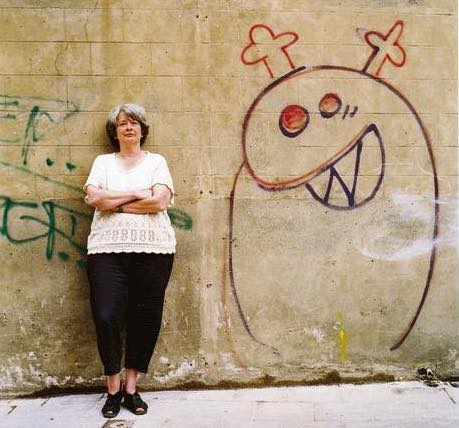
Did you ever experience writer’s block?
Small ones, not tragic ones. The question is what to do when you block and have no desire to stop working? I generally force myself to do something easy, quasi-automatic, that doesn’t require any thinking and that can enable my brain to rest for a while. At the time it was Solitaire on the screen, now it’s mostly sudokus.
Any working routines?
Every morning the first thing I do is to listen to the news whilst drinking my coffee. I then do whatever has to be done, emails and so on, and try to get going. Articles are a little laborious, in the sense that they require you to respect all sorts of constraints, lengths, themes. They can nevertheless generate new connections you didn’t necessarily anticipate. The readers’ virtual presence and the need to explain and justify yourself is also stronger when writing articles than books. Books on the other hand are real adventures, but you need to feel their call in order to initiate one.
If you were a philanthropic billionaire where would you throw your money?
I would certainly not decide by myself but ask friends whom I really trust to help me. But can you trust friends when you are a billionaire? Anyway, I’m grateful to have been spared the curse of having billions.
Why?
Because to help another is the most demanding thing to do in the world. Helping without damaging.
***